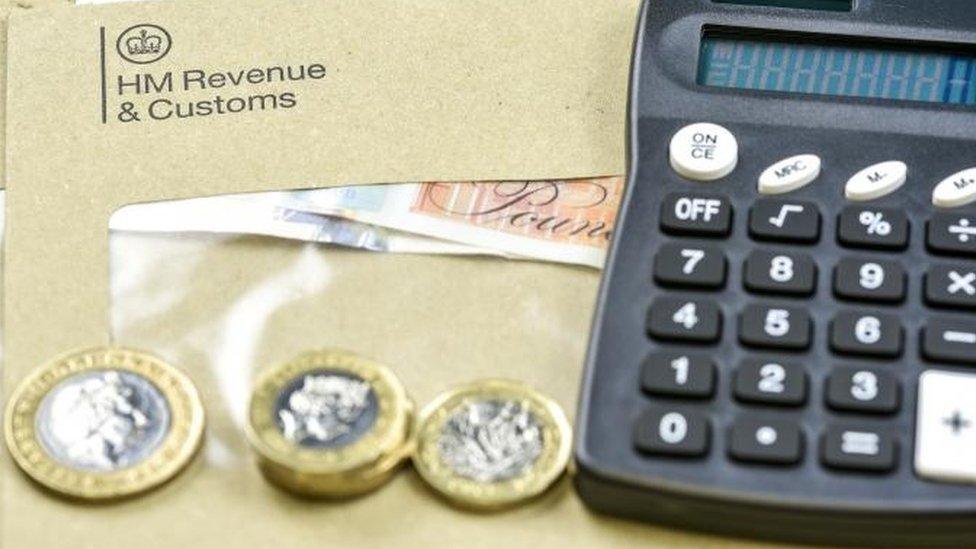Millions yet to file tax return as scammers circle
- Published

More than three million people have yet to file their self-assessment tax return just days before an, albeit less stringent, deadline of 31 January.
HM Revenue and Customs (HMRC) said that 3.5 million people were still to file, accounting for 29% of those who are in the self-assessment system.
The tax authority will not fine those who are up to a month late.
Campaigners have also warned taxpayers that fraudsters are using the deadline as a "smokescreen" to steal money.
Fines waived
More than 12 million people, including the self-employed and those with more than one source of income, are required to complete self-assessment forms. The vast majority do so online. There is an earlier deadline for returns on paper.
For the second consecutive year, the normal £100 fine for filing late online will be waived by HMRC until the end of February, given some people have been delayed by Covid.
In addition, anyone unable to pay their self-assessment tax by 31 January will not receive a late payment penalty if they pay their tax in full, or set up a time to pay arrangement (which spreads the cost over time), by 1 April.
Interest will still be added to the bill for unpaid tax from 1 February.
Myrtle Lloyd, HMRC's director general for customer services, said: "We know some customers may struggle to meet the self-assessment deadline on 31 January which is why we have waived penalties for one month, giving them extra time to meet their obligations."
However, she still urged people not to delay in completing the requirement.
The last-minute rush ahead of the deadline is seized upon by fraudsters who send out false messages claiming to be from HMRC.
Tricks include emails and text messages claiming a rebate is due, or threats of court action.
Whatever the scam, the fraudsters' ultimate aim is either to steal money directly from bank accounts, or to gather enough personal information to apply for credit it in their victims' names.
show fraudsters have piggy-backed on the fact that many people expect correspondence from HMRC at this time of year, given it sends out four million legitimate letters and texts, according to Charlie Shakeshaft, founder of Individual Protection Solutions - which runs a membership scam alert programme.
"This is a useful smokescreen for scam artists, because messages might not appear to people to have come out of the blue," he said.
"But it is the time to be most vigilant."
HMRC has recorded considerable success in reducing the number of so-called phishing messages in the last year.
New cyber controls had prevented 90% of the most convincing text messages from reaching the public, it said, and in June last year 51 people were arrested at two call centres in Delhi, India, that were dedicated to facilitating HMRC scams.
From being the third most phished brand globally, HMRC is now outside the top 100.
Related topics
- Published6 January 2022